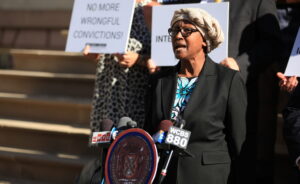
Cannabis still illegal federally
New York – “Oh, but I did ayahuasca in El Salvador,” explained a bartender in Bushwick. She traded stories about drug use with another patron, believing it was all safe in an immigration context. I learned she was from London, let her know I practice immigration and asked her about her status. “I have a green card, I don’t really care about citizenship honestly, the only thing it would do is let me vote and I hate American politics.”
“Okay, but there’s a lot of ways someone can lose a green card, like getting caught with a joint. I always recommend biting the bullet, paying the fee, filing the N400, and ensuring some indiscretion won’t cost you your life in the country,” I explained. “But it’s being legalized in New York,” she said. “Doesn’t matter, I’ve represented immigration clients that have been busted with controlled substances, and immigration law, for purposes of removal [deportation] proceedings, follows the federal law for controlled substances. This means if you get caught with marijuana, you could potentially be deported.”
With New York set to legalize marijuana, there will be a lot of similar misunderstandings. Considering that marijuana charges can derail even an asylum application, these misunderstandings can end in tragedy.
Marijuana Is Still Illegal Federally
Our system of law consists of federal and state. Immigration law is exclusively federal as it implicates the relationships between nations, and a uniform immigration policy is needed for coherency: states could keep separate lists of who can or cannot enter the US through their ports, and individuals banned in New Jersey would be able to walk there after entering the country through New York.
The federal government retains this exclusive power to control immigration through Supreme Court cases such as Chae Chan Ping v. the U.S. (the controversial “Chinese Exclusion Case”), Fong Yue Ting v. the U.S., and DeCanas v. Bica. Immigration power is also reserved in the constitution through the Commerce clause, the Naturalization Clause, the Migration and Importation Clause, and the War Power clause.
Because immigration is federal, it follows the federal Controlled Substances Act, which lists marijuana as a Schedule I substance. Federal drug law gives absolutely no consideration to whether the state in which the immigrant used marijuana had any degree of decriminalization or legalization.
The effect of a drug crime can be as extreme as revoking someone’s green card. This is despite the fact that green cards are only for immigrants who will be spending the rest of their lives in the US. In fact, a green card can be revoked if someone leaves the country for long enough for USCIS to determine that they no longer intend to live in the US (typically anything longer than six months starts to raise red flags).
As an immigration attorney, I’ve represented clients with drug crimes. In the words of a mentoring attorney: “I’d rather represent someone who got arrested for drunk driving or into a car accident and pled to manslaughter after accidentally injuring or even killing someone. There are a couple of ways around those, but fewer ways to address a plea bargain or conviction for drugs.”

Immigration Law and Marijuana
A marijuana conviction can affect an immigration case in several ways. For example, it can make an immigrant deportable, inadmissible (not allowed to legally enter or remain in the US), bar them from establishing a good moral character for several different types of applications and defenses, or have them designated as an aggravated felon. Despite the name, aggravated felonies can be for crimes that many would consider relatively low-level, such as marijuana possession. Should an immigrant plead to or be convicted of an aggravated felony, there are very few ways around it. Most of them will require a years-long relationship with (and thousands of dollars spent on) an immigration attorney to have any chance of success.
While technically any amount of possession can be an issue, some crimes have been judged to be overbroad and thus not aggravated felonies in the Second Circuit, which includes New York. This includes Criminal Possession of a Controlled Substance in the Seventh Degree and Fifth Degree, Criminal Sale of a Controlled Substance in the Fifth Degree, and a few other very low-level drug crimes. However, if you are arguing that, you already pled to or were convicted of a drug crime, and your immigration status is now in the hands of a judge.
This is one of many reasons why it is so important to consult a knowledgeable immigration attorney if you are an immigrant before taking a plea in criminal court: even a relatively minor possession plea (which immigration law treats essentially the same as a conviction) can result in a green card being revoked and a former green card holder being deported.
There is a one-time exception for personal possession of 30 grams or less of marijuana. This exception only applies to deportability and not inadmissibility, meaning that the possession will likely make an immigrant inadmissible and unable to obtain status in the US or re-enter the US on a green card. This exception is not mandatory, and if you are trying to qualify for it or another exception at trial, chances are you’ve already had a lot of bad days leading up to it.
Essentially, no matter where an individual is in their immigration case, from applying for their first admission to the country to being able to remain under their green card, a marijuana plea or conviction, or an immigration officer discovering an immigrant or sponsor in the cannabis industry, will cost thousands of dollars in attorneys fees to address at best, and will completely derail a case with nothing to be done about it at worst.
There is a one-time exception for personal possession of 30 grams or less that relates to deportability. However, this exception is not mandatory, does not apply to findings of inadmissibility, and you will be making your argument to an immigration judge who may or may not accept it.
The Takeaway in NYC
Here’s some good news: NYC is a “sanctuary city,” and so cooperates significantly less with immigration enforcement, going so far as to not allow city workers to use city resources or time on the clock to report immigrants to ICE. This is not perfect, however, and does not mean that someone who does not work for the city will not report you.
Anyone considering joining the “green rush” about to hit one of America’s most immigrant-heavy cities needs to understand that working in the cannabis industry can also get one deported: under federal law, you’re not a “cannabis entrepreneur” or “bud-tender,” you’re a “drug dealer.” Not only can this get an immigrant into removal proceedings, but it can also affect their ability to sponsor a family member for a visa to come into the country as their income comes from a Schedule I substance. Family members accepting any financial benefit from “drug dealing” (i.e. spouses or children) can be inadmissible for five years. Even if ICE or USCIS does not act on removal, it can still affect a non-citizen’s ability to establish the good moral character required for a green card or naturalization to citizenship or bar a green card holder from re-entering the country when immigration officers ask them about their business in the US. As recently as 2019, USCIS issued a policy notice reaffirming that marijuana is a Schedule I controlled substance.
If you have a green card, filing for citizenship is vital: I cannot tell you how many cases I’ve worked or seen where an immigrant was shocked that a minor crime would now require years of litigation that would likely end with their deportation. Unless you commit fraud in your citizenship application, once you’re a citizen, it cannot be revoked.
For those with green cards or other immigration statuses that receive marijuana charges, it is ESSENTIAL to speak with an immigration attorney before accepting a plea or going to trial. This is because what a criminal defense attorney sees as a good deal (and often is) can be a death sentence for an immigration case. Often, prosecutors are willing to work with a defendant to push a crime into a category that is not considered an “aggravated felony” to not have them deported due to a relatively low-level crime. Still, they need to be advised what plea that may be as they often have little to no experience in immigration, a very complex area of law.
Thumbnail Credits: Shelby Ireland/Unsplash
Sources
- USCIS Policy 2019.
- This is a legal analysis by The Current Affairs Times.





